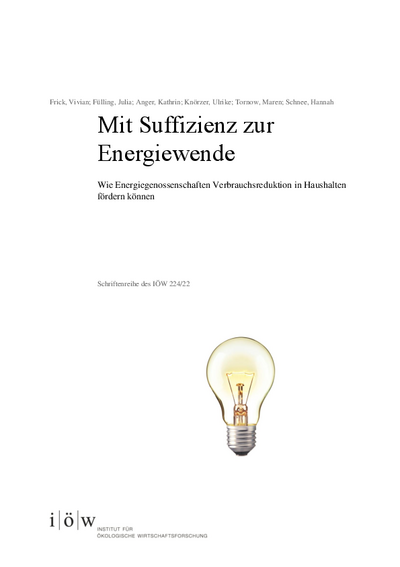With Sufficiency towards the Energy Transition How energy cooperatives can promote consumption reduction in households
The German energy transition requires reducing absolute energy consumption in addition to switching to renewable energies. Sufficiency is a key approach to reduce absolute energy consumption, which is so far underrepresented. The study explores how energy cooperatives can promote sufficiency in households. With their community-oriented approach, they pursue the goal of decentralized, environmentally friendly energy production and create acceptance for the energy transition through the participation of citizens. The study shows which communicative strategies energy cooperatives already use to promote sufficiency and which others they could potentially use in the future.
Literature reviews, media analyses, and interviews were used to examine how energy cooperatives can effectively design their communications and interventions to promote sufficiency. The analysis of 505 websites and expert interviews show that energy cooperatives still rarely mention sufficiency directly, but take up many aspects of it, such as energy saving, references to sharing concepts, or calls for civic engagement in climate protection. In addition, the study contains insights into how members of energy cooperatives can be convinced of sufficiency lifestyles and how sufficiency communication also enriches member recruitment and retention. Overall, the study makes clear that energy cooperatives are ideal multipliers for promoting sufficiency in households.



